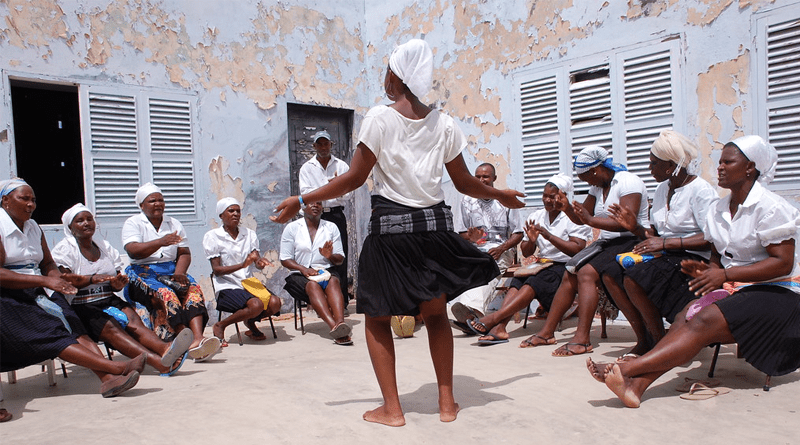Due to its stunning 5-star hotels and resorts, gorgeous beaches, and popularity among tourists, Cape Verde is one of the most traveled nations in Africa. Songs, proverbs, common notions, superstitions, and other oral traditions are also well known in the nation. The Batuku song and dance is a well-known oral tradition today. Despite the fact that men might be seen clapping their hands to the beat of the drum or playing an instrument, the dance is primarily performed by women.
There are several theories as to how Batuku came to be, the oldest musical tradition in Cape Verde that has been recorded. Some claim that it began as a result of sexual assault committed by slaveowners during the time of slavery, but others think it came about as a result of the suffering experienced by women due to the loss of a child, spouse, or other relative during the time of slavery or colonialism. However, it is generally acknowledged that Batuku was brought to the islands by slaves.
Batuku was a kind of expression used during slavery. While spending hours practicing the dance, bondage men and women experienced brief moments of freedom. In addition to mesmerizing audiences with their seductive and vivacious motions, women who performed Batuku felt heard and valued as they shared their opinions about their cultures through songs that expressed their anguish or grief.
During colonialism, batuku and another style of funana dance were prohibited. The dance was outlawed by King Manuel I of Portugal because, according to historians quoted by authors Katherine Carter and Judy Aulette, it was “too African” and “too primitive,” “noisy,” and “indecent.” Additionally, it was viewed as a violation of the principles of Christianity, which at the time was the state religion of the Portuguese Empire.
Additionally, colonial authorities said that because the dance was a “rehearsal for liberation,” it ought to be illegal. They issued a warning that anyone who disobeyed the law would face fines or imprisonment. But Batuku was successful. Despite being performed “underground in people’s homes,” the dancing style persisted.
The new authorities of Cape Verde encouraged people to learn Batuku when the island nation won its independence from Portugal in 1975. Politicians recruited Batuku dancers to perform at their conventions while the dancing style was also pushed at events, particularly festivals. Nowadays, batuku is performed at a variety of social gatherings, such as weddings, parties, baptizes, etc.
During the dance, you might hear ladies chanting about their ancestry or complimenting and advising onlookers.
And this is how it’s done.
“Batuku consists of a rhythmic thumping and a call-and-response; the singer yells out and others react,” explain authors Carter and Aulette. The lyrics are frequently made up as the song goes on. A rolled-up pano or other piece of cloth, held between the legs, occasionally wrapped in plastic, and pounded with the hands serve as improvised drums that give the rhythm for the dancing.
Women sing and sit in a semicircle as one dances in the center of the group while donning a shawl around her upper thighs (Lobban, 1998). The woman begins by moving her hips slowly while dancing, then moves more quickly until she reaches a climax of dancing, fabric pounding, and chanting (Irwin, 1998).
Carter and Aulette also mention that some ladies will dance while holding a bottle of wine to demonstrate their prowess. The dancer chooses the following dancer at the conclusion of each song by handing her the shawl or wrapping it around her before exiting the circle (Máximo, 1998).
 The African History Truly African
The African History Truly African

